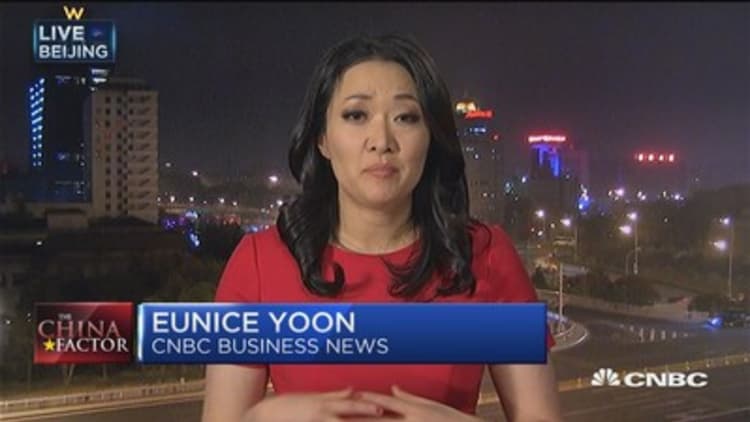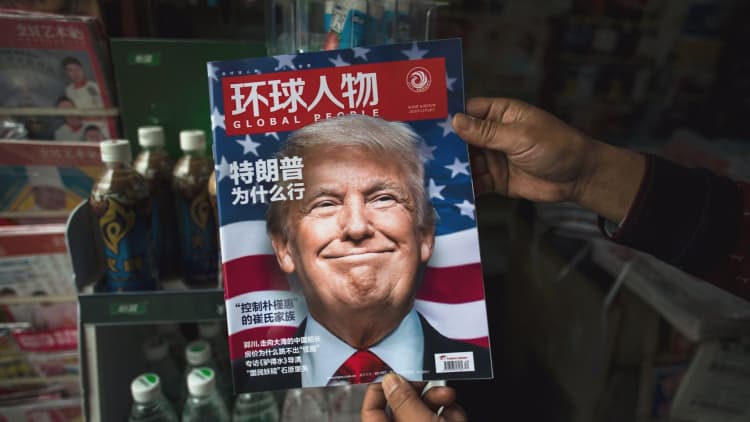
When Chinese President Xi Jinping meets with U.S. President Donald Trump in Florida, the message he will likely bring is: don't blame China for your problems.
China's Foreign Ministry has been telegraphing what Xi and his delegation plan to emphasize — that China has contributed greatly to the U.S. economy. Vice Foreign Minister Zheng Zeguang recently listed statistics to support China's argument, and those figures have been widely circulated in the Chinese state press.
From Beijing's perspective, China's trade surplus "does not necessarily mean China benefits while the United States loses," according to government news agency Xinhua Thursday. "About 40 percent of the trade surplus is actually generated by U.S. companies in China," it argues.
Other statistics oft-repeated by China: bilateral trade and investment created 2.6 million American jobs in 2015 and each American family saves $850 every year thanks to cheap Chinese goods.
The state media has been ratcheting up China's position in the run-up to the Trump-Xi talks. The Global Times, a Communist Party paper, ran an editorial Tuesday with the headline: "U.S. job losses are not China's fault." Xinhua ran a commentary Wednesday entitled: "It's unfair to blame China for U.S. job losses."
By reiterating this view, the Chinese are hoping to deflect what they expect to be heavy criticism from Trump over the trade deficit and job losses in manufacturing. However, the motivation behind the message is also a window into what Beijing is most worried about — that the talks could lead to finger-pointing and potentially herald a period of uncertainty in the Sino-U.S. relationship.
With a likely Chinese leadership reshuffle at a Communist Party Congress in the fall, Xi needs to project strength to his people this year. From Beijing's point of view, managing the optics of the Trump-Xi meeting will be critical.
The worst case scenario for the Chinese government would be any development that appears to diminish Xi. The Chinese are warily watching for signs of open hostility, awkward moments, or disrespectful tweets during the proceedings.
In fact, the best outcome for Beijing would be if Xi and his delegation escape without any public conflict and instead depart with a path for constructive dialogue and assurances that the China-U.S. relationship will remain on a stable course.
— CNBC's Daisy Cherry contributed to this report.
WATCH: Why Trump's foreign policy is on a collision course in the South China Sea



